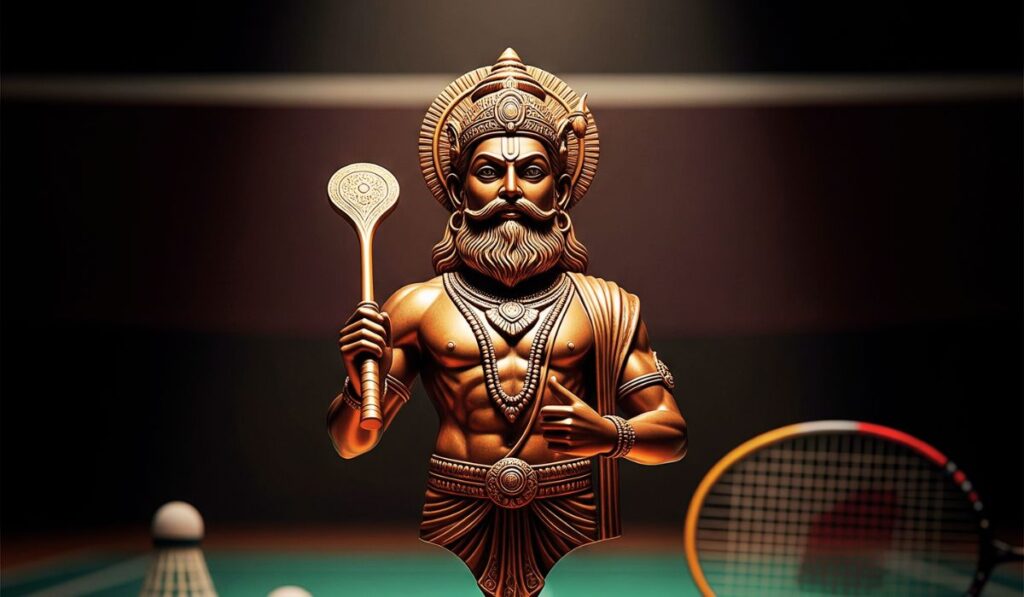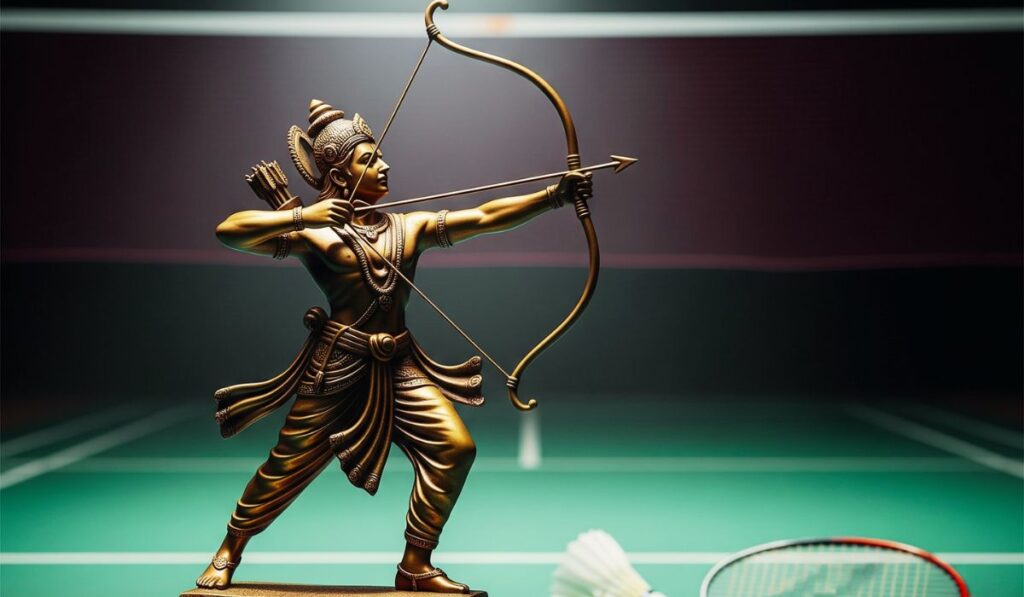The Untold Triumph and Tragedy of the Dronacharya Award in Badminton: Who Gets It and Who’s Forgotten
When we speak of triumph in Indian sports, our minds often rush to the athletes. But behind every grand victory is a silent force — the coach, the guide, the master of transformation. Nowhere is this more evident than in badminton, where the Dronacharya Award carries the weight of dreams, discipline, and decades of dedication. But as revered as it is, the path to receiving this honour isn’t always fair. Some are celebrated. Others are left in the shadows.
A Symbol of National Gratitude
The Dronacharya Award in badminton is more than just a trophy. It’s an emotional acknowledgment of years spent shaping champions. Instituted in 1985, this prestigious award is named after Guru Dronacharya, the mythical teacher from the epic Mahabharata, known for his relentless pursuit of perfection and unshakable discipline. The award is not merely decorative — it carries a cash prize, a bronze statuette, a certificate, and a place in India’s history.
What sets this recognition apart is that it honours coaches, not athletes. In badminton, where skill is honed through hours of sweat, strategy, and self-reflection, the role of a coach is almost sacred. They are the unseen sculptors of glory.
Behind Every Smash Lies a Story
Badminton coaches who receive the Dronacharya Award are often those who’ve spent a lifetime behind the curtains — training, observing, correcting. Their hands shape champions who soar on international courts. Think of Pullela Gopichand, whose unyielding mentorship turned players like PV Sindhu and Saina Nehwal into household names. Gopichand received the Dronacharya Award in 2009 and since then, his coaching philosophy has set the gold standard.
But for every Gopichand, there are others — equally committed, painfully overlooked. They train in rural corners, without sponsorships or facilities, their brilliance muted by politics and paperwork.
More Than Just a Medal
To many, the Dronacharya Award in badminton isn’t just recognition — it is validation. It is proof that the countless mornings spent perfecting footwork, the lonely evenings spent reviewing match footage, the heartbreak of watching protégés fall before rising again — were all worth it. It’s an emotional high, a sensual rush of belonging to something bigger than oneself.
It’s also a power move. Being honoured with this award opens doors — to government panels, international coaching assignments, and better funding for training centres. The ripple effect is huge. Young coaches look up to past recipients with reverence, and aspiring players are drawn to their training with even more intensity.

The Other Side of the Story
But the award is not without controversy. Accusations of bias, regional favouritism, and politics have often tainted its legacy. Some deserving coaches wait endlessly, while others receive it through influence rather than merit. The emotional toll this injustice takes on passionate mentors is rarely acknowledged.
A coach who’s given their entire life to the sport — only to be repeatedly passed over — carries a silent ache. Their contribution, though vital, is buried in bureaucracy. This darker side of the award reveals a bitter truth: recognition in Indian badminton can be both intoxicating and elusive.
Why It Still Matters
Despite its flaws, the Dronacharya Award in badminton remains one of the most powerful forms of recognition a coach can receive in India. It stirs a deep sense of national pride, and it gives visibility to those who often remain invisible. It serves as a beacon for young trainers across the country — a symbol that one day, their voice, their effort, and their story will also be heard.
The Emotional Core of Recognition
Every coach dreams of one moment: when their hard work is recognized not just by players or peers, but by a nation. The Dronacharya Award in badminton is that moment. It carries an emotional weight that can’t be measured in rupees or metal. It’s the soul’s applause after years of silence. When a coach finally holds that bronze statuette, they are not just holding a trophy — they’re holding every early morning session, every bruised wrist, every heartbreak their player has ever endured. It’s the tangible proof that what they gave up — their family time, their health, their financial stability — mattered.
Why Badminton Coaching Is a Lifetime of Sacrifice
In badminton, success is rarely overnight. Coaches must devote decades to mastering player psychology, tactics, and the art of motivation. While the player stands alone on court, the coach stands alone in preparation — charting weaknesses, crafting strategies, and staying up through nights of tournament footage. The emotional rollercoaster that comes with watching your protégé win or fall short is incomparable. To win the Dronacharya Award in badminton is not just a win for a coach — it’s a release of pent-up emotion, a flood of relief and pride.
Gopichand: A Case Study in Excellence and Influence
It’s impossible to talk about the Dronacharya Award in badminton without revisiting the story of Pullela Gopichand. He wasn’t just a coach; he was a reformer, a visionary who redefined India’s badminton landscape. After winning the award in 2009, his Hyderabad academy became the heartbeat of Indian badminton. But beyond infrastructure and fame, it was his emotional investment that set him apart. He nurtured players not just as athletes but as humans. He taught them to embrace pressure, trust their instincts, and channel their nerves into firepower.
The Forgotten Coaches of Rural India
While cities boast of elite coaches and plush facilities, the heart of India’s badminton training lies in its villages. Here, passionate mentors craft champions from nothing — bamboo sticks become rackets, cowsheds become courts, and water drums substitute for gyms. These unnamed heroes give their everything, yet they remain faceless in the national narrative. Why? Because awards like the Dronacharya Award in badminton often favour those already in the spotlight. It’s an emotional injustice — a brutal silence where applause should have been.
The Politics of Recognition
It’s no secret that awards in India are sometimes tainted by politics. The selection process for the Dronacharya Award in badminton isn’t always transparent. While some coaches are bypassed due to lack of influence, others win because of their network rather than merit. This leads to resentment within the coaching community. Emotionally, it crushes those who deserve better. When integrity is replaced by favouritism, the award loses a bit of its soul.
What It Feels Like to Be Nominated But Not Chosen
Ask any badminton coach who’s been nominated for the Dronacharya Award in badminton and they’ll tell you — it’s a double-edged sword. The nomination brings hope, but not winning feels like betrayal. It’s the pain of watching someone else walk away with what your heart has yearned for. Some bury their hurt behind smiles, others leave coaching altogether. The emotional damage of rejection in a field driven by passion is deep and lasting.
Breaking Barriers: Female Coaches and the Dronacharya Award
The badminton world is still largely male-dominated, but change is slowly sweeping in. Female coaches, often ignored and underestimated, are now rising through the ranks. When a woman wins the Dronacharya Award in badminton, it’s not just personal recognition — it’s a societal shift. It tells young girls that they, too, can lead, can teach, can conquer. And that seductive, slow burn of change? It is powerful, poetic, and long overdue.
The Ripple Effect of Recognition
Winning the Dronacharya Award in badminton isn’t the end. It’s the beginning of impact. Once awarded, a coach gains more than prestige — they gain a platform. They are invited to train at national camps, speak at seminars, shape policies. More importantly, they inspire. Hundreds of young coaches begin to emulate their methods, philosophies, and ethics. The emotional chain reaction that starts with one award can ignite a thousand fires across the country.
How the Award Changes a Coach’s Personal Life
Recognition changes relationships. Coaches who were once seen as just sports teachers suddenly become mentors, heroes, legends. Family members, who may have doubted their long hours and modest income, now beam with pride. Spouses, who sacrificed their own dreams, feel validated. Children grow up inspired. The Dronacharya Award in badminton doesn’t just crown a coach — it elevates an entire family.

The Dark Days Before the Triumph
Behind every Dronacharya Award in badminton winner is a phase of darkness. Times when funds dried up. When players quit. When injuries shattered dreams. When a single win seemed impossible. But they didn’t quit. They kept going. These emotional scars, though invisible, are the most powerful credentials they carry. The award becomes their light at the end of a very lonely tunnel.
Celebrating Unsung Legends
India’s badminton legacy is not built on medals alone. It’s built on moments — a coach pushing a student to train despite fever, another sleeping at railway stations to attend a tournament, someone spending their last salary to buy shuttlecocks. These are the silent, sensory experiences that the Dronacharya Award in badminton aims to honour. But are we doing enough to find these stories?
Emotional Toll of Long-Awaited Recognition
Some coaches wait decades for the award. When it finally comes, it’s often in their 60s or 70s — their bodies frail, but their hearts ablaze. The award ceremony becomes an emotional climax. Years of tears, sweat, and sleepless nights finally find a home in applause. But there’s also regret: “Why did it take so long?” This bittersweet moment reflects the flaws in our recognition system.
Future of Coaching: The Digital Evolution
Modern badminton coaching has evolved with technology. Today’s coaches are not just mentors but data analysts, video strategists, and fitness experts. Those who adapt continue to shape legends. But many struggle to transition and get left behind. The Dronacharya Award in badminton must begin to recognize innovation — not just legacy. The award should celebrate those who blend tradition with transformation.
Mentorship Beyond Technique
True coaching goes beyond strokes and serves. It touches mental health, motivation, self-worth. The best coaches teach life, not just sport. They listen when a player is low, celebrate when no one’s watching, and lift their wards when the world criticizes them. The Dronacharya Award in badminton honours this emotional labour — often invisible but deeply impactful.
The Need for Reform and Fair Play
To keep the soul of this award alive, reforms are needed. Selection should be based on data, ethics, and real impact — not networks. Transparency must replace secrecy. Stories from grassroots coaches should be heard. Only then will the Dronacharya Award in badminton truly become what it was meant to be — a sacred celebration of selfless service and sport’s purest love.


2 thoughts on “Dronacharya award in badminton”